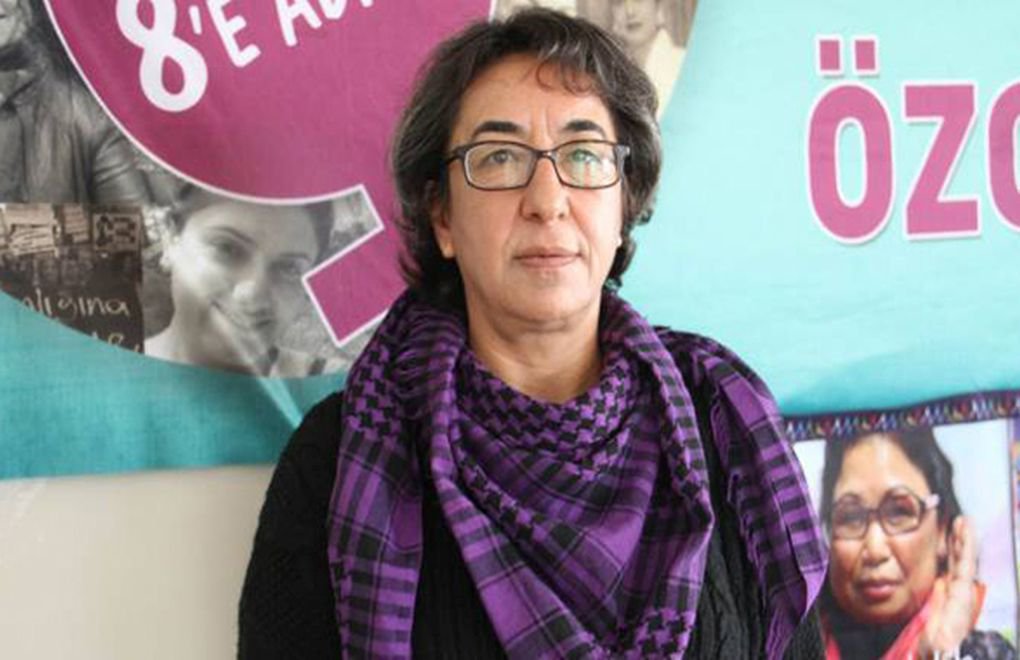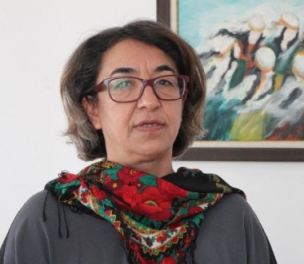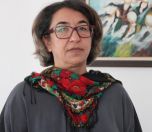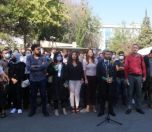Click to read the article in Turkish
Standing trial on charges of "leading a terrorist organization" and "being a member of a terrorist organization," Free Women's Movement (Tevgera Jinên Azad-TJA) Term Spokesperson Ayşe Gökkan was remanded in custody yesterday (January 28).
"I call the alleged anonymous witnesses liars. I have been waging a women's struggle for 35 years. In other words," Gökkan told the court, adding that she was taking part in women's activities before the establishment of the Kurdistan Communities Union (KCK), an outlawed group that she is accused of being a member of.
Her attorney, Lütfiye Berfin Gökkan, told bianet that the court ruling to remand her in custody has no legal basis.
"She had been remanded in custody for eight months in this case and was later released. Later, this case was combined with five different cases. She was detained, testified and released on probation many times because of these cases," said the attorney, adding that Gökkan has been under judicial control for three years, which means that she periodically has to check in at a police station.
Gökkan's memberships in the Democratic Society Congress (DTK), the Free Women's Congress (KJA) and the TJA were subject to allegations against her, said Berfin Gökkan.
"My client accepts that she is a member of TJA, KJA and DTK, she also accepts her activities related to these and insistently emphasizes that all of them were legal activities," she noted. "But a verdict of arrest has been given by taking into account the abstract statements by the anonymous witnesses.
"All the evidence has been collected, there is no evidence to collect about four years ago but a verdict of arrest has been given for 'evidence spoliation', 'suspicion of escape', and 'disrupting public health.'
"There was suspicion of escape about a person who makes statements to the press every day. Why would a person with suspicion of escape stay at their home? She was taken from her home."
About Ayşe GökkanWomen's rights defender and politician. In the late 1980s and the early 1990s, she worked for the People's Labor Party (HEP) and the Democracy Party (DEP) in the mostly Kurdish-populated southeastern province of Urfa. She later actively took part in the People's Democratic Party (HADEP), the Democratic People's Party (DEHAP) and the Democratic Society Party (DTP). All these five parties succeeded one another and all of them were eventually closed by the Constitutional Court. In 2002, she was an MP candidate from Urfa but was not able to be elected as her party didn't exceed the election threshold of 10 percent. Alongside her political activities, Gökkan also wrote for several newspapers, including Özgür Gündem, Özgür Politika and Azadiya Welat and the Özgür Kadının Sesi magazine. She was born in Suruç, Urfa, in 1965. She graduated from the Cyprus American University's journalism department in 1998. |
(RT/VK)








-132.jpg)